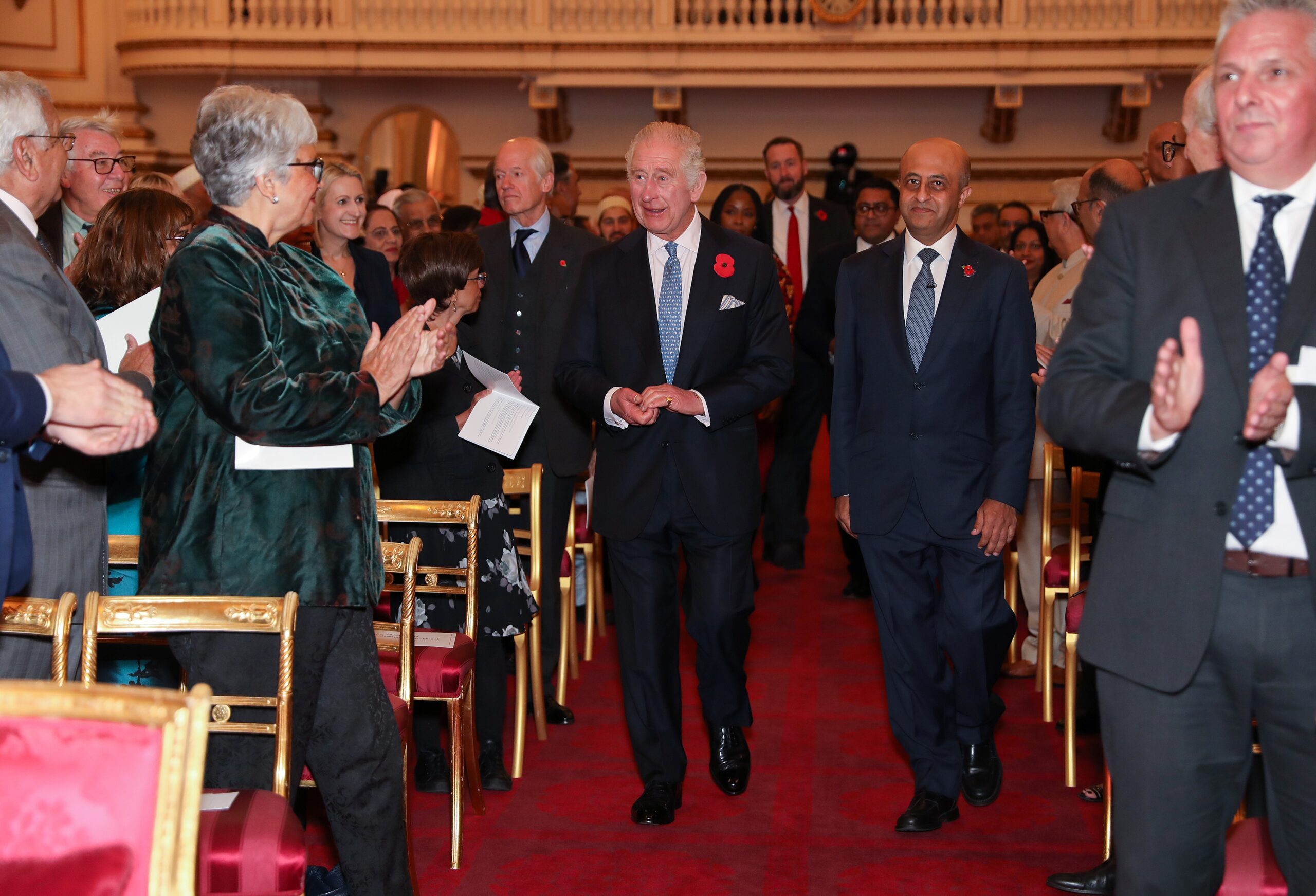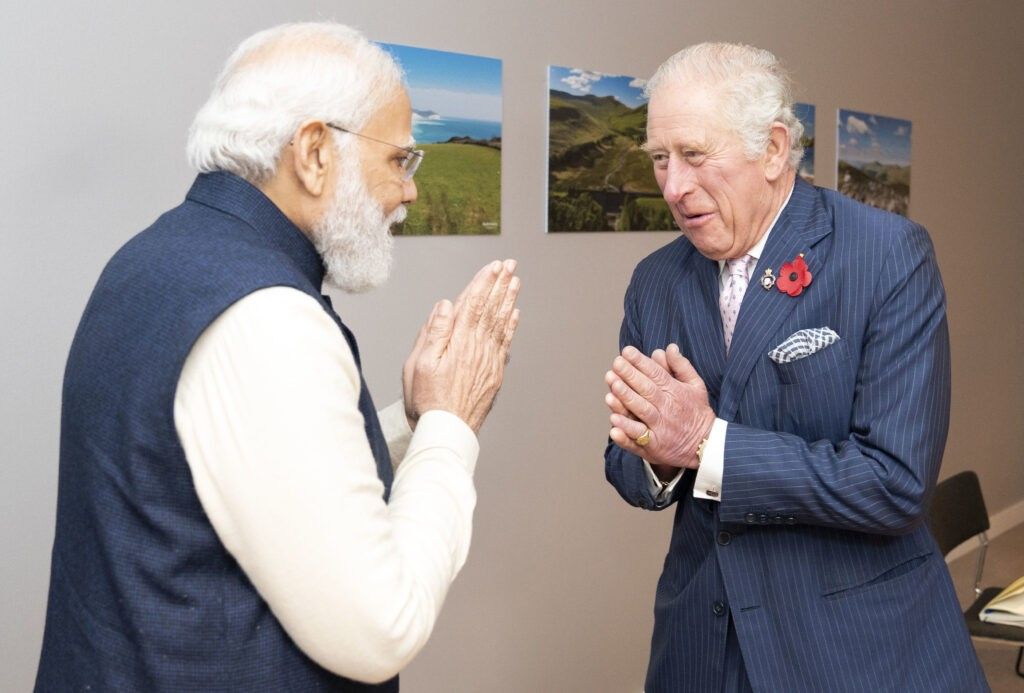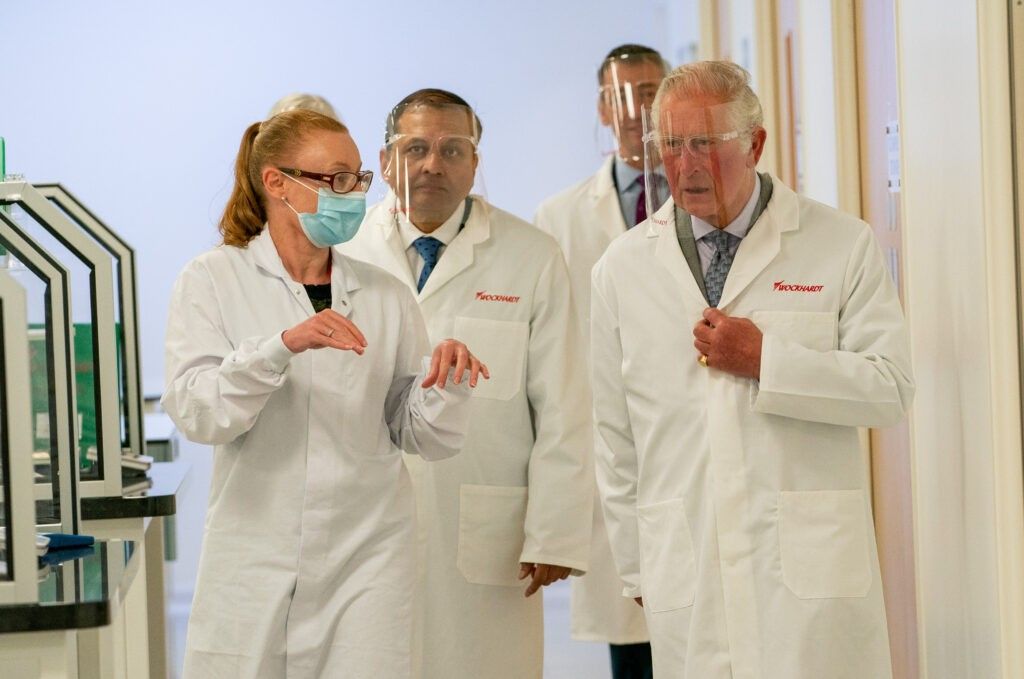- Saturday, April 26, 2025
Monarch known for consistent support of communities and businesses thriving in Britain

By: Amit Roy
KING CHARLES’S cancer diagnosis has shocked the whole country, but will be felt especially keenly by the British Asian community, for whom he has cared as long as anyone can remember.
He said as much when his private secretary, Sir Clive Alderton, attended the Hinduja Diwali party in October 2022 shortly after he had succeeded his mother as monarch.
Sir Clive relayed a message from the King: “All I wanted to do on behalf of His Majesty is to wish everyone in the room a very happy Diwali. It is a community that the King has cared about for many, many years and spent a great deal of time and energy working in this country and around the world to bring communities together.”
The country needs King Charles, but British Asians most of all. There will be prayers for him in British Asian homes, temples, mosques and gurdwaras throughout the land. People will take heart from the prime minister’s comment that his unspecified cancer, detected during a procedure to treat his enlarged prostate, has been caught early.
When Rishi Sunak held his first Diwali party as prime minister at 10, Downing Street, he revealed: “You will be pleased to know, His Majesty King Charles, did have Diwali mithai (sweets) for me.”
The King attended a reception at Buckingham Palace to mark the 50th anniversary of the resettlement of Ugandan Asians in the UK. The event was staged by the British Asian Trust which was founded in 2007 by then Prince Charles to tackle widespread poverty, inequality and injustice in south Asia.

When he became monarch, King Charles said he would have to pass responsibility for some of his charities to others, but one he safeguards as his baby is the British Asian Trust, which has Lord Jitesh Gadhia as its chairman.
King Charles is also head of the Commonwealth. It will be recalled that the Queen made an extraordinary personal request at the 2018 Commonwealth Heads of Government Meeting in London, when she said: “It is my sincere wish that the Commonwealth will continue to offer stability and continuity for future generations, and will decide that one day the Prince of Wales should carry on the important work started by my father in 1949.”
King Charles set out his job credentials: “For my part, the Commonwealth has been a fundamental feature of my life for as long as I can remember, beginning with my first visit to Malta when I was just five years old.”
He outlined his ambitions for the future: “I pray this Commonwealth Heads of Government Meeting will not only revitalise the bonds between our countries, but will also give the Commonwealth a renewed relevance to all citizens, finding practical solutions to their problems and giving life to their aspirations. By doing so, the Commonwealth can be a cornerstone for the lives of future generations, just as it has been for so many of us.”
Commonwealth leaders, among them the Indian prime minister, Narendra Modi, signalled their acceptance of the Queen’s request. In 1952, Elizabeth II was made head of the Commonwealth by India’s then prime minister, Jawaharlal Nehru, following the death of her father, King George VI.
Robert Hardman, a royal writer on the Daily Mail who has published a new biography, Charles III: New King. New Court. The Inside Story, said in the book: “During the reign of Elizabeth II, the big question was whether the Commonwealth could survive deep divisions over some of the great international divides of the day, notably racial politics in Rhodesia and South Africa.
“For Charles III, there are – at present – no fears of a great schism. The organisation is a paragon of unity compared to years gone by. In 2018, for example, its members were unanimous in endorsing the then Prince of Wales as future head. The role has never been hereditary. Elizabeth II was not appointed until the Indian prime minister, Jawaharlal Nehru, sent a telegram of condolence on the death of her father, adding he ‘welcomed’ her as the new head of the Commonwealth. The other member states then followed suit.”
I gained an insight into King Charles’s thinking when I travelled with him and his then wife Princess Diana as part of the British press party to Italy, Oman, Saudi Arabia and Bahrain in the Middle East, and to India. As the Prince of Wales, he spoke about his belief in inter-faith dialogue.
There was a significant event that happened in Italy – or rather, didn’t happen.
I remember a visit to the Vatican when as Prince of Wales, he and Diana had an audience with Pope John Paul II. Moved by the meeting, he announced he hoped to celebrate mass with the Pope as a gesture of unity with the Roman Catholic church. But on the morning of the day this was supposed to happen, the accompanying press officer, Vic Chapman, told us the joint mass had been cancelled on the orders of Buckingham Palace. This did not improve HRH’s mood, said Chapman, adding in his characteristically earthy way, “It sure ****** up his lunch.”

In Britain, the sovereign holds the title “Defender of the Faith and supreme governor of the Church of England”. It was clear that traditionalists in Buckingham Palace did not approve of King Charles relaxing the strict definition of “Defender of the Faith” – which he hasn’t as monarch.
But he did explain: “I said I would rather be seen as defender of faith all those years ago because… I mind about the inclusion of other people’s faiths and their freedom to worship in this country. And it always seems to me that while at the same time being defender of the faith you can also be protector of faiths. You have to come from your own Christian standpoint… ensuring that other people’s faiths can also be practised.”
One country he has visited on numerous occasions is India, for which he has a soft spot. His first visit was in 1975 when he was accompanied by Lord Mountbatten, from whom he inherited his love for the country. When Mountbatten was assassinated by the IRA in 1979, the first country in the world to lower its flag was not the UK, but India.
On many occasions, King Charles has spoken out in defence of Islam. In 1993, he gave a lecture entitled “Islam and the West” at the inauguration of the distinguished lecturer programme at the Oxford Centre for Islamic Studies. He returned in 2010 and toured the centre before delivering another lecture, “Islam and the environment”, at Oxford University’s Sheldonian Theatre.
In 2015, he expressed concern about radicalisation in Britain: “Well, of course, this is one of the greatest worries, I think, and the extent to which this is happening is the alarming part. And particularly in a country like ours where, you know, the values we hold dear. You think that the people who have come here, are born here, go to school here, would abide by those values and outlooks.
“The frightening part is people can be so radicalised either by contact with somebody or through the internet … I can see, I suppose, to a certain extent, some aspect of this radicalisation is a search for adventure and excitement at a particular age.”
During the pandemic, King Charles made special appeal to British Asians to get the Covid jabs and expressed support for the vaccine roll-out: “As you undertake this absolutely vital work, I can only wish you every possible success in coming to the aid of our ethnic minority communities, for whom I hold the greatest affection.